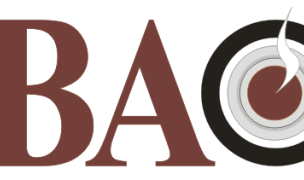 20 Terms
20 TermsHome > Terms > English (EN) > Arab Americans
Arab Americans
Although “Arab” refers to members of a language group from the Middle East and North Africa, the term has been muddled in the US by historical shifts, global Islamic politics and widespread stereotypes of fanatic Muslim “others.” In fact, many Arab Americans are Christians (90 percent of those who arrived before the Second World War) and longterm citizens. Yet the 2–3 million Americans of Arab descent face continual possibilities of discrimination, vividly depicted in the mass round-ups of the 1998 movie The Siege, which spurred vigorous Arab American protest. These representations belie Arabs’ long presence in the States, their complexity and their integration into diverse settings.
Arab immigration began in the late nineteenth century with young males coming from Lebanon (then part of the Ottoman empire), pursuing wandering mercantile careers in North and South America; one is remembered as the “Persian” in the musical Oklahoma.
This brought family and friends over before 1920’s immigration curbs (perhaps a total of 100,000), and generally they became highly assimilated.
Immigration renewed after the Second World War with students and professionals from Arab states (primarily Muslim). Christians and Muslims from Lebanon, Palestine, Iraq, Egypt and other areas have also escaped traumatic local conditions, as well as pursuing economic security. Men and families have led immigration rather than single women—Arab American women have felt special strains between new social mores and their roles within families and a variety of Arab/Muslim gender roles.
Most Arab Americans are urban, concentrated in New York City, Los Angeles, CA, Chicago and Detroit, MI (200,000 citizens of Lebanese and Palestinian descent). They belong to diverse Orthodox and Roman Catholic traditions, as well as Protestant faiths established by missionaries, although most are now Muslim. Valuing education and labor, they have established themselves in politics—senators James Abourezk (South Dakota) and George Mitchell (Maine), and Clinton Health and Human Services Secretary Donna Shalala, Wisconsin. They have also succeeded in mass media (comedian/impresario Danny Thomas, actor F. Murray Abraham), although they are sometimes typecast as other “ethnics.” Ralph Nader, consummate American crusader and presidential candidate, is also of Arab descent.
Yet divisions in the contemporary Middle East continually reinforce American prejudices. The Arab—Israeli war of 1967 became a watershed for Arab American identity, and the Association of Arab-American University Graduates, Inc. and the American-Arab Anti-Discrimination Committee, among others, emerged in this era.
Nonetheless, in the 1990s, mass media caricatured Arabs as greedy merchants and oppressed, but sensual females in Disney and Star Wars, while denigrating Arab cultural and political claims as extremist in contrast with the moral values of Israeli lobbying.
Universities often treat Arabic as a dead language despite 246 million speakers worldwide and 355,000 speakers in the US—more than Hindi, Russian or Yiddish. Thus, Arab Americans are resisted within the melting-pot despite strong claims of history and participation.
- Part of Speech: noun
- Synonym(s):
- Blossary:
- Industry/Domain: Culture
- Category: American culture
- Company: Routledge
- Product:
- Acronym-Abbreviation:
Other Languages:
Member comments
Terms in the News
Billy Morgan
Sports; Snowboarding
The British snowboarder Billy Morgan has landed the sport’s first ever 1800 quadruple cork. The rider, who represented Great Britain in the 2014 Winter Olympics in Sochi, was in Livigno, Italy, when he achieved the man-oeuvre. It involves flipping four times, while body also spins with five complete rotations on a sideways or downward-facing axis. The trick ...
Marzieh Afkham
Broadcasting & receiving; News
Marzieh Afkham, who is the country’s first foreign ministry spokeswoman, will head a mission in east Asia, the state news agency reported. It is not clear to which country she will be posted as her appointment has yet to be announced officially. Afkham will only be the second female ambassador Iran has had. Under the last shah’s rule, Mehrangiz Dolatshahi, a ...
Weekly Packet
Language; Online services; Slang; Internet
Weekly Packet or "Paquete Semanal" as it is known in Cuba is a term used by Cubans to describe the information that is gathered from the internet outside of Cuba and saved onto hard drives to be transported into Cuba itself. Weekly Packets are then sold to Cuban's without internet access, allowing them to obtain information just days - and sometimes hours - after it ...
Asian Infrastructure Investment Bank (AIIB)
Banking; Investment banking
The Asian Infrastructure Investment Bank (AIIB) is an international financial institution established to address the need in Asia for infrastructure development. According to the Asian Development Bank, Asia needs $800 billion each year for roads, ports, power plants or other infrastructure projects before 2020. Originally proposed by China in 2013, a signing ...
Spartan
Online services; Internet
Spartan is the codename given to the new Microsoft Windows 10 browser that will replace Microsoft Windows Internet Explorer. The new browser will be built from the ground up and disregard any code from the IE platform. It has a new rendering engine that is built to be compatible with how the web is written today. The name Spartan is named after the ...
Featured Terms
Euronews
Founded in France on January 1, 1993, Euronews is a prominent multilingual news channel, currently running in approximately 155 countries worldwide. ...
Contributor
Featured blossaries
Marat Avetusyan
0
Terms
1
Blossaries
1
Followers
Business Analyst Glossary by BACafé
 2 Terms
2 Terms
Browers Terms By Category
- Wine bottles(1)
- Soft drink bottles(1)
- Beer bottles(1)
Glass packaging(3) Terms
- Muscular(158)
- Brain(145)
- Human body(144)
- Developmental anatomy(72)
- Nervous system(57)
- Arteries(53)
Anatomy(873) Terms
- General Finance(7677)
- Funds(1299)
- Commodity exchange(874)
- Private equity(515)
- Accountancy(421)
- Real estate investment(192)
Financial services(11765) Terms
- Investment banking(1768)
- Personal banking(1136)
- General banking(390)
- Mergers & acquisitions(316)
- Mortgage(171)
- Initial public offering(137)
Banking(4013) Terms
- Industrial automation(1051)



